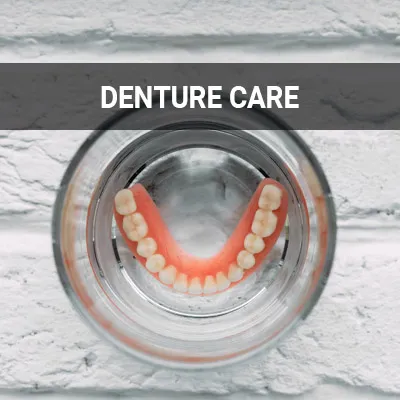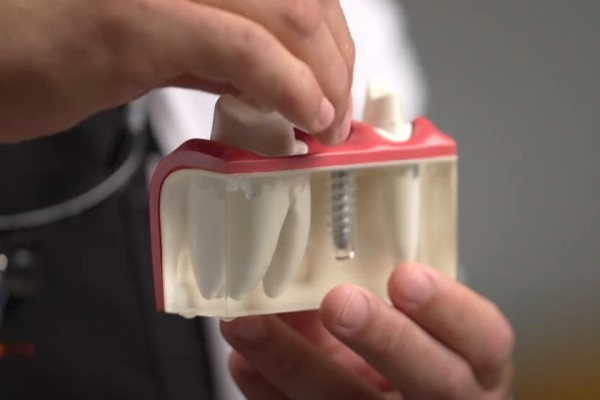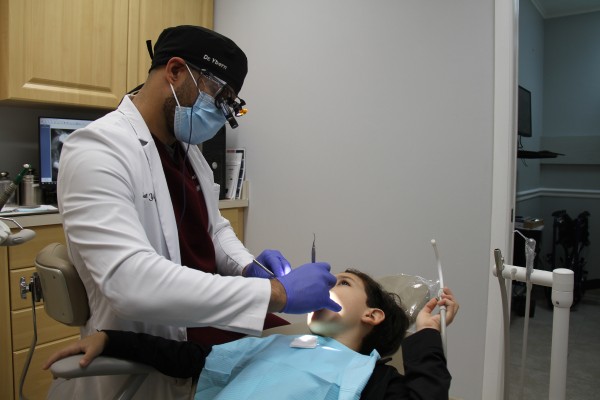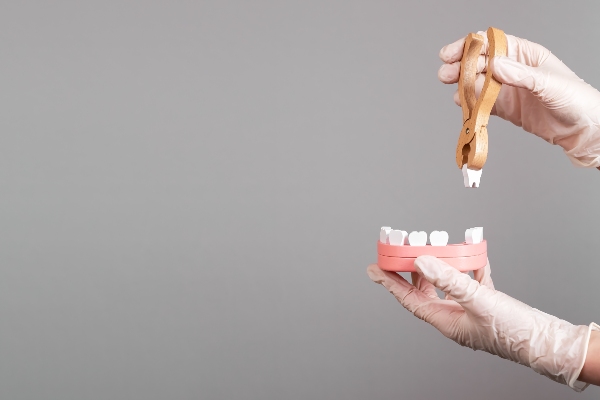What to Expect When Getting Dentures Fort Pierce, FL
Preparation before getting dentures includes shopping for certain types of foods and products and reading about the expected lifestyle after dentures. Lifestyle after dentures brings about several changes, but with the right information and preparation, it can be a relatively smooth transition. Dentures are a popular, efficient way to replace missing teeth and to bring back a smile. Most denture treatment plans have certain provisions in case the dentures need adjustments, such as reshaping or relining.
Tips for preparation before getting dentures are available at Fort Pierce Smiles in Fort Pierce and the surrounding area. The biggest changes occur in the first few days after the procedure. It is critical to stock up on soft foods with the texture of mashed potatoes and ice cream.
Increased salivation is common with new dentures, as are sore spots. Rinsing the mouth with warm salt water helps. Our office is here to help if any soreness or pain persists. After about a month, your food consumption and lifestyle should mostly return to how it was pre-dentures. Call us at (772) 232-7073 to make an appointment and learn how to prepare for your new dentures.
Preparing Your Home Before Getting Dentures
Foods that are soft and easy to chew are key. Here are some suggestions for meals and snacks:
- Breakfast. Scrambled eggs, smoothies, grits, muffins, bagels cut into pieces.
- Lunch and dinner. Pulled pork, ground beef, tuna salad, chicken salad, pasta with meatballs, soft fish such as salmon, crab cakes, chili, soup.
- Snacks and side dishes. Mashed potatoes, fresh seedless blueberries, steamed or baked vegetables, olives.
- Dessert. Pudding, ice cream, frozen yogurt, cake, crepes, baked apples.
The best way to clean dentures is with a denture brush. Patients should brush their dentures several times a day, although not with the same toothpaste that the patient was using pre-dentures (or with toothpaste at all). Instead, patients should use special denture-compatible products. If they are unsure, our team can offer r recommendations. For example, regular household soap may be mild enough to clean dentures well. However, it is crucial to use the proper method.
Also, it is a wise investment to get a daily cleanser. As the American Dental Association notes, these cleansers come in the form of tablets, gels, pastes, creams, and solutions. Look for the ADA seal of acceptance on a cleanser. Dental adhesives are good to have as well, especially if you enjoy foods such as corn on the cob that require more biting force. They come in the form of wafers, strips, creams, and powders.
“Patients should brush their dentures several times a day, although not with the same toothpaste that the patient was using pre-dentures (or with toothpaste at all).”
Lifestyle Changes To Expect
In the long term, a patient's lifestyle should be the same before and after dentures. If anything, lifestyle can improve after dentures because of increased confidence and oral function. At the very least, there will be decreased pain and discomfort associated with dental conditions that are often the reason for needing dentures.
The greatest changes typically come during the first month as patients adjust to eating softer foods. As the weeks pass, they can reintroduce solid foods that are a bit harder to chew. Some people can eat steak cut into small pieces a few days or a week after getting dentures, but each person is different. It is a good idea to test out foods before reintroducing an entire diet.
“The greatest changes typically come during the first month as patients adjust to eating softer foods.”
Keeping Dentures Clean
Caring for removable dentures is a daily task that will help keep them looking, feeling, and functioning well. People should purchase a nonabrasive toothbrush before getting dentures. Along with always handling them with care, the Mayo Clinic recommends rinsing dentures after eating to remove any food particles and then cleaning one's mouth with a soft toothbrush or cloth before replacing them.
Denture-wearers should also soak their dentures overnight. Moisture helps dentures retain their shape, so it is essential to soak them overnight. People should purchase a mild solution to soak their dentures in if they choose not to use water. Before placing dentures in the mouth, people should rinse them thoroughly, especially after using a soaking solution. This step is necessary to remove any harmful chemicals used in the solution.
“Caring for removable dentures is a daily task that will help keep them looking, feeling, and functioning well.”
Check out what others are saying about our dental services on Yelp: What to Expect When Getting Dentures in Fort Pierce, FL
Set Expectations
People should set expectations for before and after getting dentures. The best way for people to set realistic expectations and mitigate worries is by educating themselves on life with dentures. While wearing dentures can help people eat more comfortably, speak more clearly, and boost self-confidence, they also require lifestyle changes. Dentures can affect various aspects of daily life, such as diet, speaking, and smiling. Fortunately, most of these changes are positive.
Once people have gotten used to the feeling of dentures in their mouths, they can experience the beneficial impacts on their daily lifestyle. Although new dentures can have many positive impacts on people's lives, it's important to remember the positive effects will take time. The first few months will involve a lot of learning and practice, so do not get frustrated when dentures are not perfect immediately. It is important for patients to maintain communication with our team to help ensure their dentures look and feel great.
“People should set expectations for before and after getting dentures.”
Questions Answered on This Page
Q. How should people clean their dentures?
Q. What expectations should people have before and after getting dentures?
Q. What preparations can be made before getting dentures?
Q. What changes can one expect after getting dentures?
People Also Ask
Q. How should people adjust to their new dentures?
Q. What should I do if my dentures start to feel uncomfortable?
Q. What is the process of getting partial dentures?
Q. What are the different types of dentures?
Frequently Asked Questions
Q. Which type of cleanser is best for my dentures?
A. It depends on your preferences, but many people opt to soak their dentures in a solution. It reduces bacteria, which addresses or prevents odor issues. Other types of cleansers require brushing, which takes more time and attention than a solution.
Q. Can I use toothpaste to care for my dentures?
A. As WebMD explains, traditional toothpaste is too abrasive for dentures. WebMD adds that products with the American Dental Association (ADA) Seal of Acceptance are a great and safe choice. We can go over possible cleaning solutions to use during an appointment.
Q. Will my mouth feel tired in my lifestyle after dentures?
A. Patients' mouths may feel tired because dentures can seem quite heavy and hard at first. The more they wear them, the quicker their mouths will adjust. If they need to start by wearing them for a few hours daily and work their way up, they can do so. If serious issues with pain or soreness persist, you may need an adjustment.
Q. What tips should my family members know about my preparation before getting dentures?
A. If the patient lives in a household with others, it helps if they already eat the same things that the patient does. If possible, the patient, and those whom they live with, can go shopping together for food and dental products such as dental brushes, cleansers, and adhesives.
Q. Will my speech be affected by wearing dentures?
A. Patients may feel like their speech is hard to understand. Chances are, it is not. This effect is exaggerated because dentures affect the vibrations and sound volume traveling to one's ears. Adhesives can keep dentures from "kicking out" while talking. It is encouraged for patients to practice reading out loud so they can get used to speaking with their dentures.
Q. Should I prepare to wear dentures 24 hours a day?
A. Possibly, but only to start. Dentists may advise 24/7 wearing as the quickest route to assess whether the dentures need adjustments. After that, dentures should be removed when going to sleep, as it enables the patient's gums to rest.
Q. What should I do if I produce too much saliva with dentures?
A. One option is to rest the gums by taking dentures out. Alternatively, try drinking more water. A third approach is to suck on sugar-free lozenges.
Denture Terminology
Call Us Today
Taking the right preparations before receiving dentures can aid the adjustment process to dentures. Our team at Fort Pierce Smiles can help. Call us today at 772-232-7073 to learn more about our services or schedule an appointment.
Helpful Related Links
- American Dental Association (ADA). Glossary of Dental Clinical Terms. 2024
- American Academy of Cosmetic Dentistry® (AACD). Home Page. 2024
- WebMD. WebMD’s Oral Care Guide. 2024
About our business and website security
- Fort Pierce Smiles was established in 2023.
- We accept the following payment methods: American Express, Cash, Check, Discover, MasterCard, Visa, Care Credit, Sun Bit, iCreditWorks, and In house financing
- We serve patients from the following counties: St. Lucie County
- We serve patients from the following cities: Fort Pierce, Fort Pierce South, White City, Fort Pierce North, St Lucie, Okeechobee, Hutchinson Island, and Vero Beach
- Norton Safe Web. View Details
- Trend Micro Site Safety Center. View Details
Back to top of What to Expect When Getting Dentures











